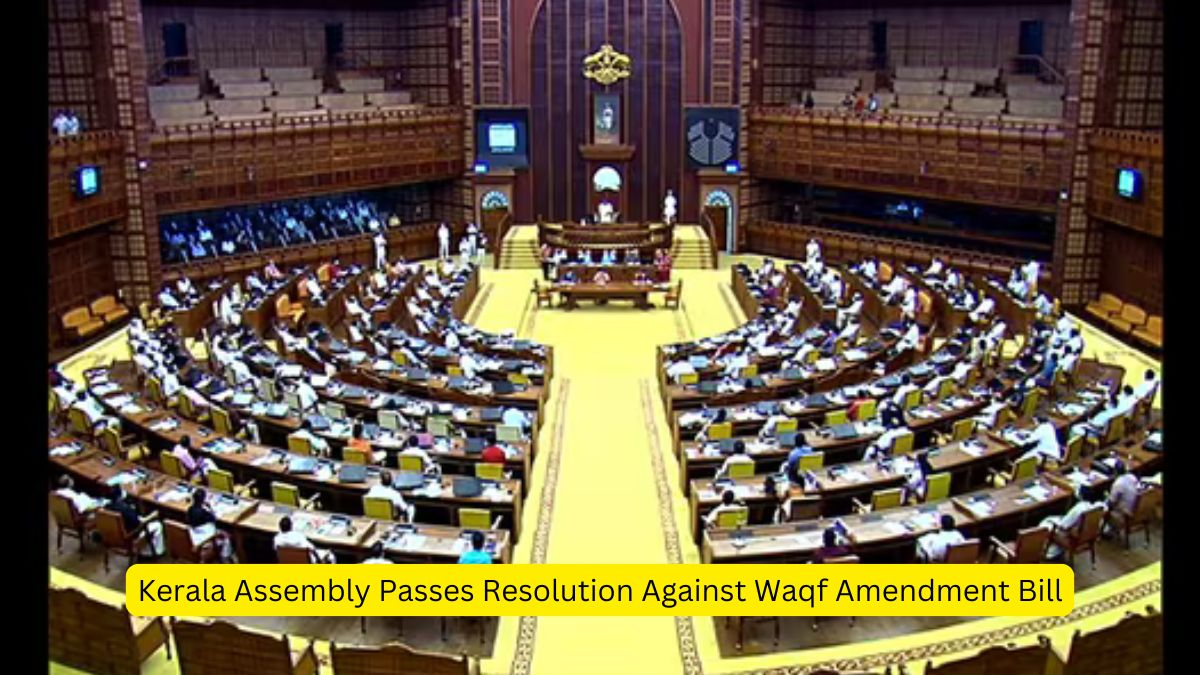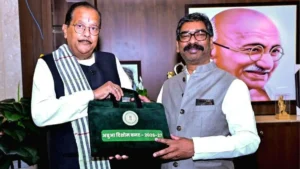The Kerala Assembly unanimously passed a resolution urging the BJP-led central government to withdraw the Waqf (Amendment) Bill 2024, which was introduced in the Lok Sabha in August and subsequently referred to a Joint Parliamentary Committee (JPC). The state’s lawmakers expressed concerns over the bill, asserting that it could undermine the autonomy of Waqf boards and the management of Waqf properties.
Who moved the resolution?
- V Abdurahiman, the minister for welfare of minorities, sports, Waqf and Haj pilgrimage, moved the government resolution under rule 118 and said that the Waqf was a subject on the concurrent list.
- He argued that the amendments proposed by the Centre as part of the new bill would take away the rights of state governments and Waqf Boards in each state and challenge democratic federalism norms in the country.
Violation of Secularism and Democracy
- Kerala’s ministers argued that the Bill violates the principles of secularism enshrined in the Indian Constitution.
- The Bill proposes Waqf Boards with nominated members and a nominated chairman, which, according to the critics, goes against democratic ideals.
- They fear it would weaken the autonomy of Waqf institutions.
Support from Opposition Parties
- Both LDF (Left Democratic Front) and UDF (United Democratic Front) MLAs supported the resolution in the Kerala Assembly. The Congress MLA from Wayanad, T Siddique, backed the resolution, stating that the Bill would strip states of their rights to manage Waqf properties, which could create a dangerous centralization of power.
- Kerala currently has no BJP MLAs, making the opposition to the Bill unanimous within the state legislature.
Arguments in Favor of the Bill
- TP Sindhumol, BJP spokesperson in Kerala, defended the Bill, citing the inclusion of women and people from all sections in the Central Waqf Council as a positive step.
- The provision that the district collector would be the final authority in land disputes was also welcomed by the BJP, especially in cases like Munambam, where Waqf Board claims have led to protests.
- The BJP called for a state-wide study to resolve land disputes related to Waqf properties and supported the Bill’s passage in Parliament.
Concerns Over Centralized Control of Waqf Properties
Nominated Waqf Board Members
- The proposed Bill would allow the central government to nominate members and the chairman of Waqf Boards, which many see as undemocratic.
- Critics argue that Waqf Boards should remain autonomous and represent the interests of local communities, rather than being subjected to centralized control.
Federalism and State Rights
- The resolution passed by the Kerala Assembly emphasized the importance of federalism and state rights in managing religious and community properties.
- The fear is that centralizing Waqf property management could lead to mismanagement and loss of community control over valuable assets.
Opposition to Centralization
Kerala’s Resistance to ‘One Nation, One Election
- Earlier in October 2024, the Kerala Assembly passed a resolution opposing the Centre’s proposal for “one nation, one election.” The state described the move as anti-democratic and detrimental to India’s federal structure.
- Kerala’s stand against both the Waqf (Amendment) Bill and “one nation, one election” highlights the state’s broader concerns over attempts to centralize power at the expense of state autonomy and federalism.
| Summary/Static | Details |
| Why in the news? | The Kerala Assembly unanimously passed a resolution urging the BJP-led central government to withdraw the Waqf (Amendment) Bill 202 |
| Resolution Overview | Kerala Assembly passed a resolution urging the BJP-led central government to withdraw the Waqf (Amendment) Bill 2024. |
| Mover of the Resolution | V Abdurahiman, Kerala’s Minister for Welfare of Minorities, Sports, Waqf, and Haj Pilgrimage, under rule 118. |




 Haryana to Launch CM Shri Schools on PM ...
Haryana to Launch CM Shri Schools on PM ...
 Jharkhand Budget 2026-27: ₹1.58 Lakh Cro...
Jharkhand Budget 2026-27: ₹1.58 Lakh Cro...
 Can Rural Women Save Tigers? Palamu’s Va...
Can Rural Women Save Tigers? Palamu’s Va...








